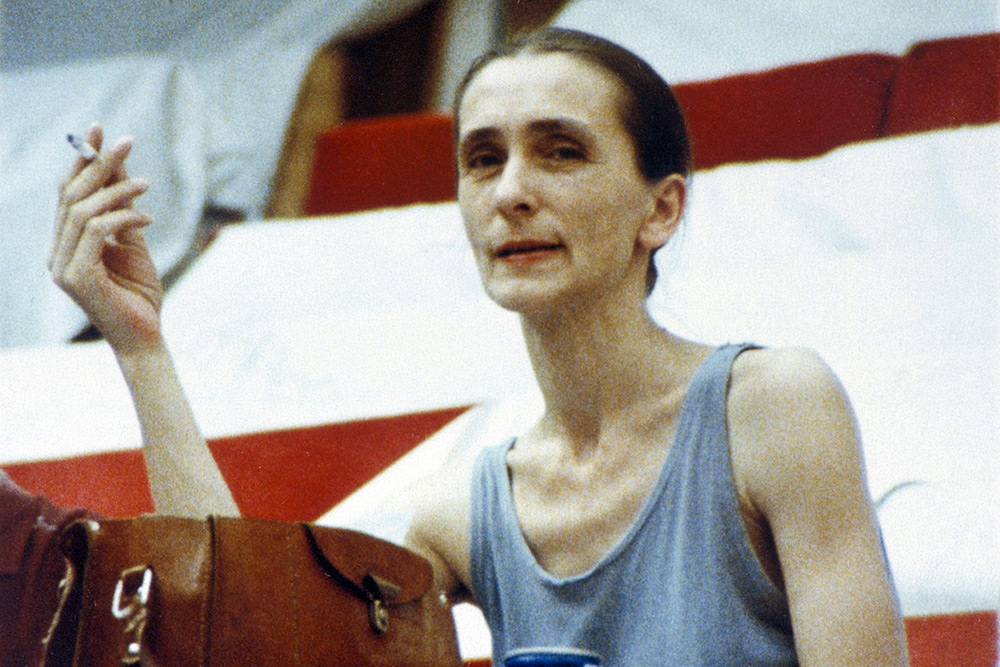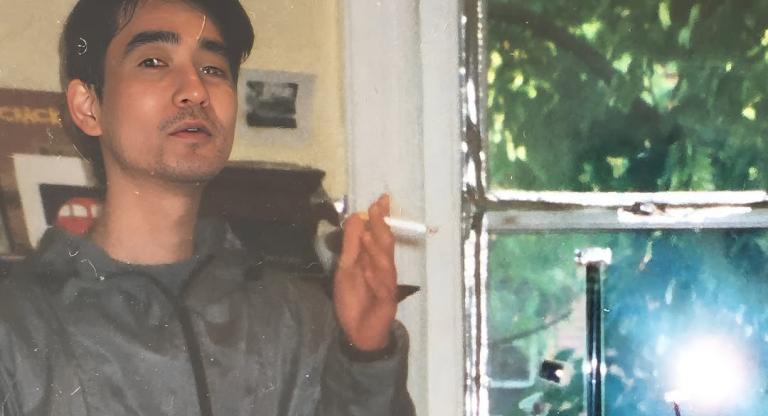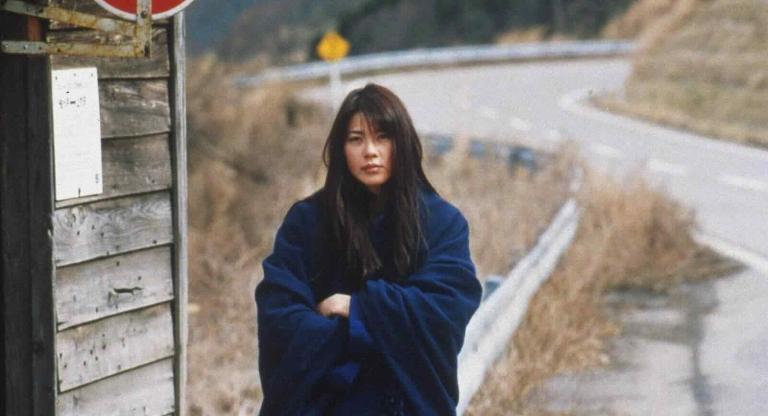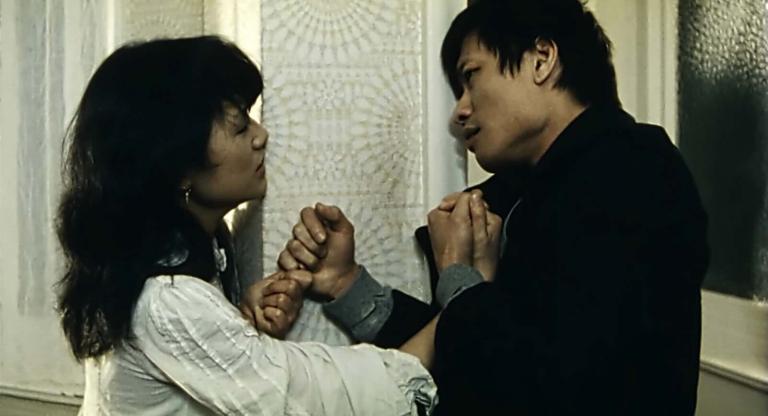One Day Pina Asked… (1983) starts with a male voice-over, somewhat pompous and distant, presenting the film as “a journey into Pina Bausch’s universe through her relentless quest for love.” After the title-cards, the voice gives way to a female voice, Akerman’s, whose tone is less assertive but more focused. Her words are, in fact, extremely careful. In this voice-over change, there is the whole of Akerman’s way of putting her themes and aesthetics into what may seem like a conventional TV program. Made as part of the series Repères sur la Modern Dance, Akerman’s 57-minute documentary shows the German choreographer Pina Bausch’s dance company performing across Europe without much context or explanation. Only in some short interviews do the dancers share a few words about how they came up with the choreographies we then see them perform. But even these interviews soon disappear in the film, and it is only the dancing that remains, the movements of the bodies, and the voices of the performers either mumbling or screaming on stage. In One Day Pina Asked…, Akerman stumbled on what could have been a conventional assignment and made it her own. It is a truly personal work that recalls Toute une nuit (1982), a film already influenced by Bausch.
Franz Schubert’s Last Three Sonatas (1989), which is screening alongside the aforementioned film at the Museum of Modern Art this evening, is like its opposite in that it feels like Akerman’s least personal work. The documentary shows the pianist Alfred Brendel, who died last June, playing and commenting on the last piano sonatas of Franz Schubert. Akerman, who appears a few times in One Day Pina Asked…, is absent from this film. She is not the person speaking to Brendel, and in an interview with the French film critic Serge Daney, claimed that she did not even attend the editing room.
Music, obviously, cannot be shown, and capturing dance in films is always an ordeal, as it is impossible to capture its frontality. If one films the whole stage, they miss the concentration and pacing of the scenography; if they zoom in on smaller elements, they cannot depict the whole organization of the stage. The main difference when it comes to filming is precisely in the formal relationship to the “universe” that the opening voice-over describes in One Day Pina Asked… That is a film made within the confines of Bausch’s work; the camera, even outside the stage, is trying to enter it, to live within it. With Schubert, there is an impenetrable barrier. It is filmed from the outside, only witness to the strong composure and erudition of an old maestro—Brendel effortlessly quotes Heraclitus and Novalis. Any film about an art form inevitably expresses a general idea about what cinema is, here shown in the transcendent state that Brendel seems to find himself in when he performs, or in the emotion that Akerman says she feels watching Bausch’s choreography. These two films show, in two very different ways, what Akerman’s work is about: a distant contemplation that is also a vivid experience.
One Day Pina Asked… + Franz Schubert's Last Three Sonatas screen this evening, September 23, at the Museum of Modern Art as part of the series “Chantal Akerman: The Long View.”



